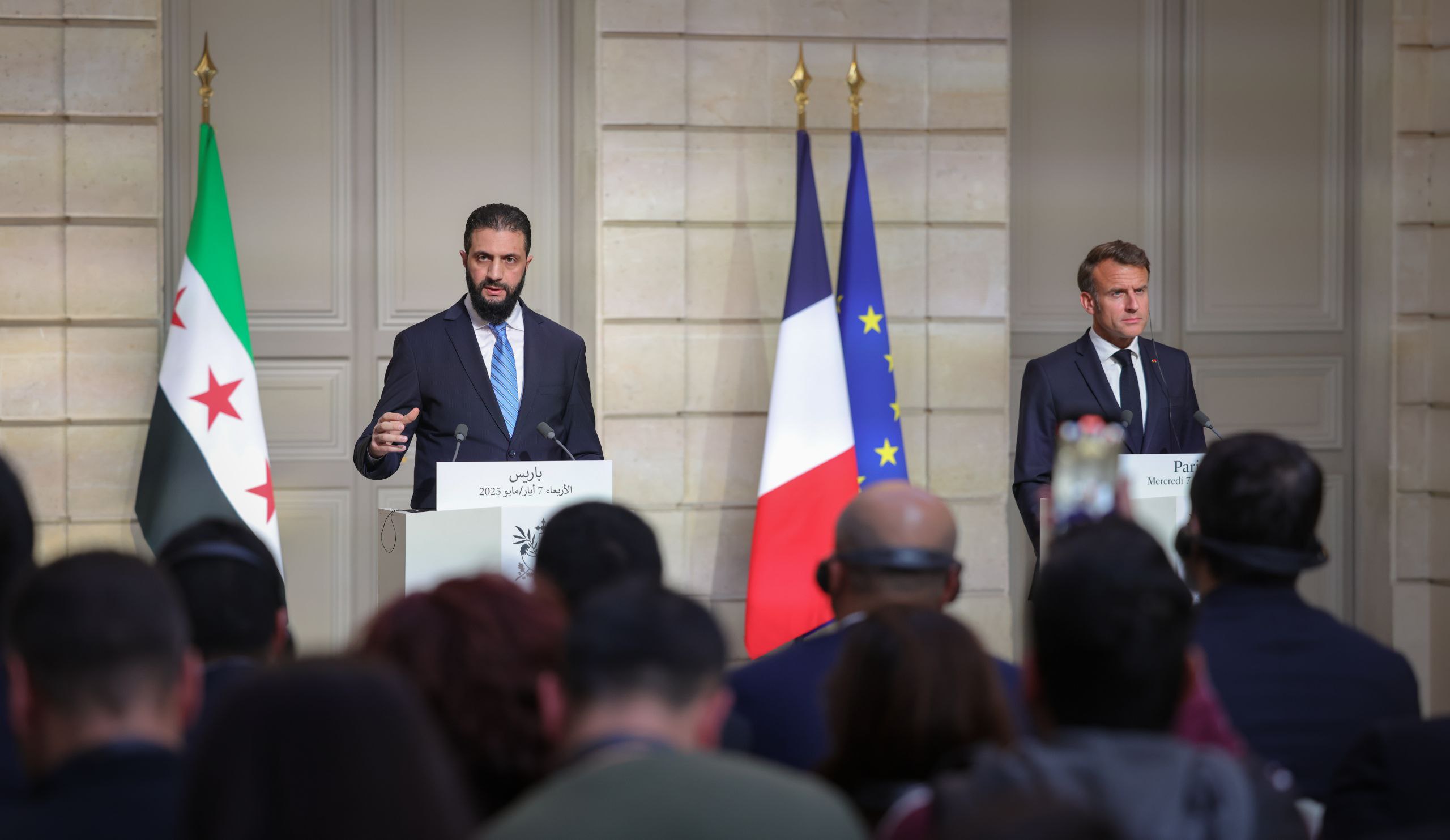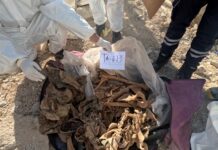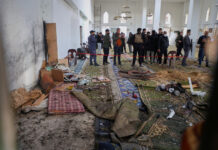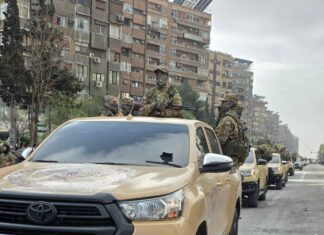
French President Emmanuel Macron welcomed Syrian President Ahmad al-Sharaa to the Élysée Palace on Wednesday, marking the Syrian leader’s first European visit since taking office. The two heads of state presented a united front on issues of reconstruction, counterterrorism, and regional stability while calling for a gradual easing of sanctions that both sides said hinder Syria’s recovery.
During a joint press conference, Macron said France “does not seek to dictate lessons” to Syria, but rather “shares the just aspirations of the Syrian people.” He emphasized France’s desire to partner with the United States and the United Nations to support the war-torn country while insisting that “no one responsible for massacres should escape punishment.”
Macron also praised the March 10 agreement between the Syrian government and the Syrian Democratic Forces (SDF), calling it “very important” and a sign of continued political progress. “I assured the Syrian president that we will meet him halfway if he continues on his path,” Macron said.
Toward Sanctions Relief and Reconstruction
The French president stressed the collective interest in lifting sanctions, stating, “Syria’s stability reflects on regional stability and France’s security.” He confirmed that France is pushing for a gradual lifting of EU sanctions and is pressing Washington to follow suit. Macron noted a sharp drop in Captagon production since the fall of the former regime and commended Syrian efforts to combat narcotics and eliminate chemical weapons.
“France wants Syria to combat all terrorist factions,” Macron said, while also pointing to Syria’s need for broad international support in rebuilding its devastated infrastructure. The leaders also addressed the situation on the Syrian-Lebanese border. Macron expressed readiness to launch negotiations with Lebanon to formalize demarcation, calling the improvement of border conditions vital to long-term security.
Sharaa Acknowledges Past, Pledges Accountability
In his remarks, President Sharaa thanked France for hosting Syrian refugees and acknowledged the atrocities committed by the former regime. “Our name has been associated with explosive barrels and chemical weapons,” he said. “The former regime practiced tyranny against all Syrians.”
Sharaa emphasized that his government is committed to reconstruction, justice, and national reconciliation. He welcomed international scrutiny, including a possible commission of inquiry into sectarian attacks, and pledged cooperation with the Organization for the Prohibition of Chemical Weapons (OPCW).
He also confirmed that the Syrian government had responded swiftly to the recent violence in the Sahel coastal region, forming investigative committees and promising accountability for those responsible. “There will be no impunity,” Sharaa said.
Talks with Israel and a Diplomatic Reset
On the subject of Israel, Sharaa confirmed indirect negotiations are underway to reduce tensions following repeated airstrikes. While he did not name the mediating party, Reuters reported that the UAE is facilitating the talks. Macron criticized Israel’s actions, saying, “Israel cannot guarantee its security by undermining the sovereignty of another country.”
French Foreign Minister Jean-Noël Barrot, speaking separately, warned that France would not offer Syria a “blank check.” He emphasized that France’s engagement is conditional on concrete progress in combating sectarianism and impunity.
The visit culminated in what both leaders described as a “new chapter” in Franco-Syrian relations, with Macron expressing confidence in Syria’s transitional leadership. “I am counting on you,” he told Sharaa.








